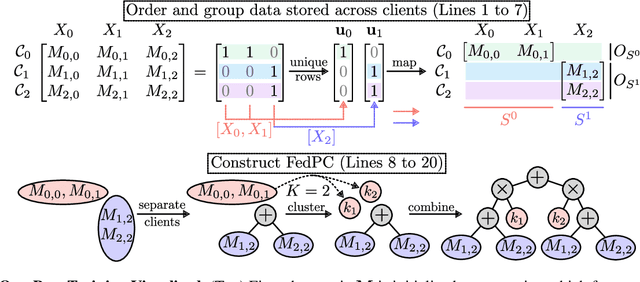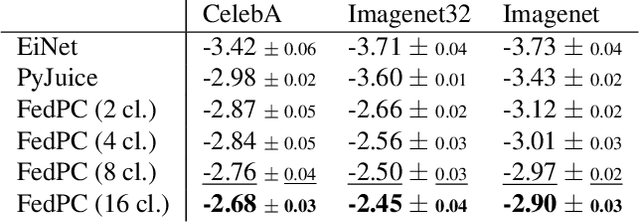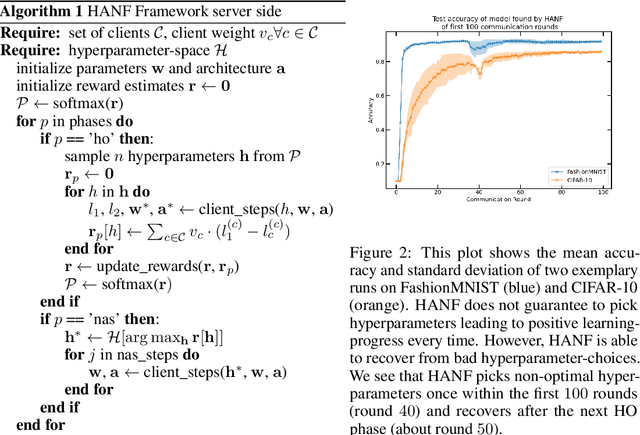Pooja Prasad
Scaling Probabilistic Circuits via Data Partitioning
Mar 11, 2025



Abstract:Probabilistic circuits (PCs) enable us to learn joint distributions over a set of random variables and to perform various probabilistic queries in a tractable fashion. Though the tractability property allows PCs to scale beyond non-tractable models such as Bayesian Networks, scaling training and inference of PCs to larger, real-world datasets remains challenging. To remedy the situation, we show how PCs can be learned across multiple machines by recursively partitioning a distributed dataset, thereby unveiling a deep connection between PCs and federated learning (FL). This leads to federated circuits (FCs) -- a novel and flexible federated learning (FL) framework that (1) allows one to scale PCs on distributed learning environments (2) train PCs faster and (3) unifies for the first time horizontal, vertical, and hybrid FL in one framework by re-framing FL as a density estimation problem over distributed datasets. We demonstrate FC's capability to scale PCs on various large-scale datasets. Also, we show FC's versatility in handling horizontal, vertical, and hybrid FL within a unified framework on multiple classification tasks.
HANF: Hyperparameter And Neural Architecture Search in Federated Learning
Jun 24, 2022



Abstract:Automated machine learning (AutoML) is an important step to make machine learning models being widely applied to solve real world problems. Despite numerous research advancement, machine learning methods are not fully utilized by industries mainly due to their data privacy and security regulations, high cost involved in storing and computing increasing amount of data at central location and most importantly lack of expertise. Hence, we introduce a novel framework, HANF - $\textbf{H}$yperparameter $\textbf{A}$nd $\textbf{N}$eural architecture search in $\textbf{F}$ederated learning as a step towards building an AutoML framework for data distributed across several data owner servers without any need for bringing the data to a central location. HANF jointly optimizes a neural architecture and non-architectural hyperparameters of a learning algorithm using gradient-based neural architecture search and $n$-armed bandit approach respectively in data distributed setting. We show that HANF efficiently finds the optimized neural architecture and also tunes the hyperparameters on data owner servers. Additionally, HANF can be applied in both, federated and non-federated settings. Empirically, we show that HANF converges towards well-suited architectures and non-architectural hyperparameter-sets using image-classification tasks.
 Add to Chrome
Add to Chrome Add to Firefox
Add to Firefox Add to Edge
Add to Edge